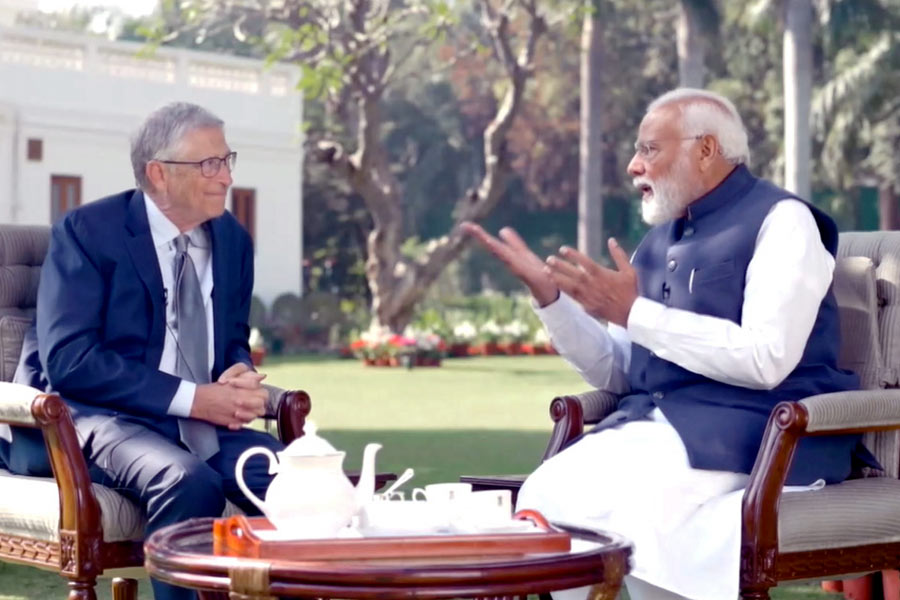Prime Minister Narendra Modi on Friday cautioned that a powerful technology like AI in unskilled, untrained hands holds significant risk of misuse, as he advocated the need for clear 'dos and don'ts' and use of watermarks on AI-generated content to curb misinformation and deepfake-related harms in the society.
In a candid, free-wheeling chat with Microsoft co-founder and billionaire philanthropist Bill Gates, Modi spoke at length on how India has democratised technology for the benefit of its citizens, embracing the power of digital for improving lives, and exuded confidence that the country will take remarkable strides in the fourth industrial revolution, that has digital in its core.
During the discussion that touched on a slew of topics, from AI to Digital Public Infrastructure, the PM said in the case of deepfakes, it is crucial to acknowledge and identify that a particular deepfake content is AI-generated, along with appropriate disclosures about its source.
Citing dangers of AI harms and deepfakes in a society, he said, misuse of his voice, for instance, can initially deceive and misguide people leading to widespread uproar.
"It is crucial to acknowledge that deepfake content is AI-generated and mention its source. These measures are important in early days. We need to establish dos and don'ts...we will need to think about it seriously," Modi said.
The PM talked of "significant risk of misuse" when a powerful technology like AI is placed in unskilled and untrained hands.
"I suggest that we should start with clear watermarks on AI-generated content to prevent misinformation," he said, adding the idea is not to devalue AI creations but to recognise them for what they are.
Acknowledging the importance of AI, the PM outlined how India extensively leveraged the new-age innovations during the G20 Summit. AI also helped to translate his speeches in different languages, he mentioned.
In the course of his conversation, the PM asked Gates to take a selfie via Namo app, as he demonstrated an AI-powered feature and face-recognition technology on the popular app. Gates lauded India's technological strides.
In a witty take on AI, the PM said, in India, mothers are referred to 'Aai' (a word that sounds similar to AI), and added that children here have become so advanced that they start using the hi-tech term very early in life.
Modi said if people use AI merely as "magic tool" or rely on it out of sheer laziness, say in drafting letters, it would lead to "great injustice".
He stressed that AI tools must be leveraged to enhance human efficiency and within a field of expertise.
"One should compete with AI and ChatGPT...should strive to surpass its capabilities," he advised.
PM said he was very clear that he would not let digital divide hamper the progress of the country. India, he said, has built digital public infrastructure, and extended digital facilities and services for public good.
Modi said data security remains a paramount concern, and emphasised that while India has a strong legal framework in place, public awareness is equally crucial.
"We need to train the common man for quality data. Second, data-owner must be informed about the intentions behind data requests. If the requester aims to monetise the data through agreements, consent should be given. The priority should be given for research, and it is essential to keep the cost of research data affordable," Modi said.
Except for the headline, this story has not been edited by The Telegraph Online staff and has been published from a syndicated feed.











